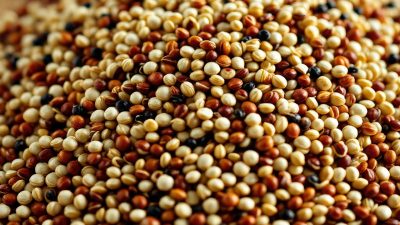Ever wondered why your grandmother’s pickles, sauerkraut, or homemade yogurt seemed to have a magic touch?
That “magic” is food fermentation — a time-honoured method of preserving food that not only enhances flavour and shelf life but also delivers powerful health benefits.
From gut health and immunity to mental clarity and weight management, fermented foods offer more than just a tangy taste. They’re rich in probiotics, enzymes, and nutrients that your body loves.
In this comprehensive guide, we’ll explore the health benefits of food fermentation, give you practical safety tips, and provide a top fermented foods list to help you incorporate them into your diet.
Contents
- 1 What is Food Fermentation?
- 2 Why Food Fermentation Matters Today
- 3 Top 10 Health Benefits of Food Fermentation
- 4 1. Improves Gut Health
- 5 2. Boosts Immunity
- 6 3. Enhances Nutrient Absorption
- 7 4. Supports Weight Management
- 8 5. Reduces Inflammation
- 9 6. Improves Mental Clarity and Mood
- 10 7. Balances Blood Sugar
- 11 8. Restores Vaginal and Skin Microbiomes
- 12 9. Reduces Lactose Intolerance
- 13 10. Natural Detoxification
- 14 Top Fermented Foods List (and How to Use Them)
- 15 1. Yogurt (with live cultures)
- 16 2. Kefir
- 17 3. Sauerkraut
- 18 4. Kimchi
- 19 5. Kombucha
- 20 6. Tempeh
- 21 7. Miso
- 22 8. Pickles (naturally fermented)
- 23 9. Sourdough Bread
- 24 10. Fermented Cheese (like aged cheddar or gouda)
- 25 Safety Tips for Consuming Fermented Foods
- 26 Who Should Be Cautious with Fermented Foods?
- 27 How Often Should You Eat Fermented Foods?
- 28 Final Thoughts
- 29 FAQ
What is Food Fermentation?
Food fermentation is the natural process by which microorganisms like bacteria, yeast, and molds break down sugars and starches in food into acids, gases, or alcohol. This transformation not only preserves the food but also enhances its nutritional profile and digestibility.
There are different types of fermentation, including:
- Lactic acid fermentation (used in yogurt, kimchi, sauerkraut)
- Alcohol fermentation (used in wine, beer, sourdough)
- Acetic acid fermentation (used in vinegar, kombucha)
Fermentation is one of the oldest forms of food preservation, dating back over 9,000 years — and it’s making a big comeback thanks to modern research on gut health.
Why Food Fermentation Matters Today
In our fast-paced, processed-food-heavy modern diets, fermented foods bring back live cultures and enzymes that our bodies are often missing.
Your gut contains trillions of bacteria — some good, some bad. Keeping that balance healthy can improve your digestion, reduce inflammation, and even support your mental well-being.
That’s where fermented foods shine.
Top 10 Health Benefits of Food Fermentation
Let’s dive into the science-backed reasons why adding fermented foods to your plate is a smart (and delicious) move:
1. Improves Gut Health
Fermented foods are packed with probiotics — beneficial bacteria that help restore the natural balance in your gut. This can reduce bloating, constipation, and indigestion.
“You are not what you eat. You are what you digest.”
2. Boosts Immunity
A large portion of your immune system lives in your gut. A healthy microbiome enhances immune responses and helps your body fight off infections more effectively.
3. Enhances Nutrient Absorption
Fermentation pre-digests food, breaking it down into more bioavailable nutrients. You absorb more vitamins and minerals like B12, K2, and magnesium.
4. Supports Weight Management
Certain strains of probiotics may help reduce belly fat and regulate appetite by influencing hunger hormones like ghrelin.
5. Reduces Inflammation
Chronic inflammation is the root of many diseases. Fermented foods help lower gut inflammation, which can benefit conditions like IBS and autoimmune disorders.
6. Improves Mental Clarity and Mood
The gut-brain axis connects your digestive system to your brain. Probiotics can reduce anxiety and depression symptoms by influencing neurotransmitters like serotonin.
7. Balances Blood Sugar
Fermented foods have a lower glycaemic load and may help stabilize blood sugar, especially when paired with complex carbs.
8. Restores Vaginal and Skin Microbiomes
Probiotics found in fermented foods can support a balanced vaginal flora and improve skin conditions like acne, rosacea, and eczema.
9. Reduces Lactose Intolerance
Fermented dairy (like yogurt or kefir) contains lower levels of lactose and higher levels of lactase, helping lactose-intolerant individuals digest dairy more easily.
10. Natural Detoxification
Fermented foods help flush toxins from the gut, supporting liver and kidney function naturally.
Top Fermented Foods List (and How to Use Them)
Ready to load your diet with gut-friendly foods? Here are the top fermented options to try:
1. Yogurt (with live cultures)
Rich in probiotics, calcium, and protein.
How to eat it:
- As breakfast with fruits and nuts
- In smoothies
- As a base for dressings or dips
2. Kefir
A tangy, fermented milk drink with more probiotic strains than yogurt.
Best uses:
- Morning drink
- In overnight oats
- As a post-workout recovery shake
3. Sauerkraut
Made from fermented cabbage, it’s high in fibre, vitamin C, and lactic acid bacteria.
Tips:
- Use as a side dish
- Top your avocado toast
- Add to grain bowls or sandwiches
4. Kimchi
A spicy Korean dish made from fermented cabbage, radish, garlic, and chili.
How to enjoy:
- With rice and eggs
- In stews or noodle dishes
- As a probiotic side dish
5. Kombucha
A fermented tea beverage with antioxidants and probiotics.
Drink ideas:
- 1 small glass daily
- Choose low-sugar varieties
- Avoid drinking with meals to reduce bloating
6. Tempeh
Fermented soybeans packed with plant-based protein and B12.
Meal ideas:
- Stir-fried with veggies
- Sliced in sandwiches
- Grilled or baked as a meat substitute
7. Miso
A fermented soybean paste used in Japanese cuisine.
How to use:
- Miso soup
- Marinades for tofu or salmon
- Salad dressings
8. Pickles (naturally fermented)
Not all pickles are probiotic-rich — look for ones fermented in salt water, not vinegar.
Eat with:
- Sandwiches or burgers
- Chopped into salads
- On a charcuterie board
9. Sourdough Bread
Fermented with wild yeast and lactic acid bacteria — easier to digest than regular bread.
Serving ideas:
- With avocado or eggs
- Grilled cheese
- Toasted with almond butter and banana
10. Fermented Cheese (like aged cheddar or gouda)
Contains natural probiotics when unpasteurized.
Serving ideas:
- Paired with apples or grapes
- Crumbled over salads
- In healthy wraps or omelettes
Safety Tips for Consuming Fermented Foods
Fermentation is natural — but it’s still essential to handle and consume these foods safely, especially if you’re making them at home.
Choose the Right Products
- Look for labels that say “contains live active cultures”
- Avoid pasteurized versions, which kill probiotics
- Pick products with no added sugars or preservatives
Introduce Slowly
If you’re new to fermented foods, start small. Sudden intake may cause temporary gas, bloating, or loose stools as your gut adjusts.
Begin with:
- 1 tbsp sauerkraut
- ½ cup yogurt
- ¼ cup kefir
Stay Hygienic When Fermenting at Home
- Use sterilized jars and tools
- Avoid metal lids (they react with acid)
- Keep food submerged in brine to prevent mold
Store Properly
- Most fermented foods should be refrigerated after opening
- Homemade ferments must be kept in airtight containers
- Discard if you notice unusual odors, slime, or mold (fuzzy, colored growth)
Who Should Be Cautious with Fermented Foods?
While fermented foods are generally safe, certain individuals should be more careful:
- People with histamine intolerance – Fermented foods can trigger symptoms like headaches or hives.
- Pregnant women – Homemade ferments carry a higher risk of contamination if not done correctly.
- Immunocompromised individuals – Consult a healthcare provider before consuming unpasteurized foods.
How Often Should You Eat Fermented Foods?
For gut health and general wellness, aim for 1–2 servings daily of different fermented foods.
Example routine:
- Morning: Yogurt or kefir
- Lunch: Sourdough sandwich with pickles
- Dinner: Rice bowl with kimchi or miso soup
- Snack/Drink: A small glass of kombucha
Rotating your fermented foods helps diversify your gut microbiome — the key to long-term health.
Final Thoughts
Food fermentation is more than a trendy buzzword — it’s a time-tested tradition that offers real, powerful health benefits.
From supporting your digestion and mood to boosting your immune system naturally, fermented foods deserve a spot in your daily routine.
With the right safety tips and variety, you can unlock the healing potential of your gut and body with each bite.
FAQ
What is food fermentation and how does it work?
Food fermentation is a natural process where microorganisms like bacteria and yeast convert sugars and starches into acids, gases, or alcohol. This process enhances flavour, preserves food, and creates beneficial probiotics.
What are the health benefits of eating fermented foods?
Fermented foods support gut health, improve digestion, boost immunity, reduce inflammation, and enhance nutrient absorption. They also help maintain a healthy balance of gut microbiota.
Are fermented foods safe to eat every day?
Yes, most fermented foods are safe for daily consumption when properly prepared and stored. However, start slowly to avoid digestive discomfort and consult a healthcare provider if you have a compromised immune system.
What are the top fermented foods to include in a healthy diet?
Popular fermented foods include yogurt, kefir, sauerkraut, kimchi, miso, tempeh, kombucha, and pickles (naturally fermented). These are rich in probiotics and nutrients.
How can I tell if a fermented food is safe to eat?
Safe fermented foods should smell pleasantly sour (not rotten), have no visible mold (unless part of the culture), and be stored at appropriate temperatures. When in doubt, discard the batch.
Can I ferment foods at home safely?
Yes, home fermentation is safe when you follow proper hygiene, use the right salt ratios, and store foods in clean, airtight containers. Always follow trusted recipes to minimize the risk of contamination.
Are all pickled foods fermented?
No. While fermented pickles are made with natural bacteria, many store-bought pickles are simply vinegar-based and don’t contain live probiotics. Look for labels that say “naturally fermented” or “raw.”


